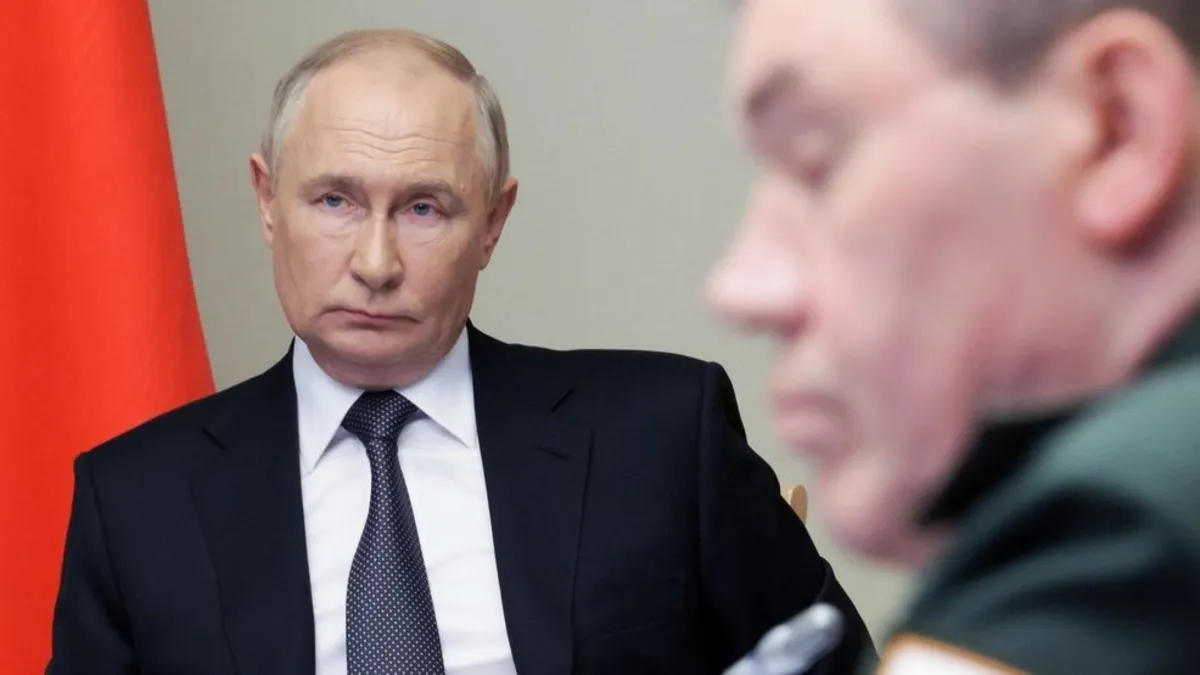
In a recent interview, former President Donald Trump expressed his belief that failing to secure a ceasefire agreement with Russian President Vladimir Putin regarding the ongoing conflict in Ukraine would be detrimental not only to the region but to the entire world. “So many people are dying,” Trump stated during his conversation with journalist Sharyl Attkisson. Despite the challenges, he remains optimistic, saying, “I really do think he’s going to agree.”
According to Russian foreign policy expert and professor emeritus at George Mason University, Katz, Trump perceives the continuation of the war as harmful not just for Ukraine but also for Russia and broader Europe. Katz noted, “I don't think he was making a comment on how the U.S. would react.” He emphasized that Trump considers the ongoing conflict to be counterproductive, suggesting that an end to the war could lead to normalized relations between Russia and the West, including the potential lifting of sanctions.
Katz elaborated that Trump believes ending the war would not only save lives but might also pave the way for increased U.S. investments in Russia. “From Trump's deal-making viewpoint, it just makes sense,” he explained. However, he added a caveat: Trump lacks the authority to compel American corporations to invest in Russia, particularly given the negative experiences many have faced in the past.
Recently, Trump has been vocal about pushing for a ceasefire in Ukraine, following discussions among U.S. and Ukrainian officials, including Secretary of State Marco Rubio. The proposed ceasefire is set for 30 days, leaving the next move to Putin. This breakthrough came after a significant meeting between Trump and Ukrainian President Volodymyr Zelenskyy at the White House.
In his interview with Attkisson, Trump pointed out the substantial financial burden the U.S. has shouldered in support of Ukraine, claiming, “The U.S. has spent $350 billion on Ukraine.” This figure surpasses estimates from other sources, which suggest the U.S. has committed around $175 billion, primarily through five bills passed by Congress since the Russian invasion began in February 2022.
The Council on Foreign Relations has highlighted that a significant portion of the funds allocated to Ukraine are being utilized domestically, funding American factories and workers to produce military supplies either for Ukraine or to replenish U.S. arsenals. While the U.S. stands as Ukraine’s largest donor, many European nations have contributed a more significant percentage of their economic output in support against Russian aggression.
When asked about his previous campaign pledge to end the war within 24 hours if re-elected, Trump acknowledged that he was being somewhat sarcastic, clarifying, “What I really mean is I'd like to get it settled.” Katz remarked that Trump likely understood the impossibility of fulfilling such a promise and was instead signaling his intention to pursue a swift resolution.
Experts believe that convincing Putin to agree to a ceasefire is a complex challenge that may not resolve quickly. Katz explained that Putin is interested in addressing what he perceives as the root causes of the conflict, which includes seeking concessions from both Ukraine and the West. He emphasized that Putin aims to ensure that NATO does not expand to include Ukraine—a demand that Katz considers untenable.
International discussions are ongoing, with France and Britain talking about sending troops to Ukraine as part of security guarantees in the event of a ceasefire. However, Katz noted both nations would likely hesitate to proceed without American backing. There are also discussions about the presence of North Korean troops, who have been assisting Russia in its military efforts, and how their withdrawal could factor into negotiations.
Putin aims to maintain territorial gains in Ukraine, which include Crimea and parts of the Donbas region, and possibly expand further into Ukrainian territory. Katz pointed out that Russia has taken control of an additional 27,000 square miles since its invasion began three years ago.
Given the dynamics of international relations, Katz suggested that if Putin remains unyielding in ceasefire negotiations, Trump will face a critical decision: either increase sanctions on Russia or bolster support for Ukraine. However, Katz expressed skepticism about the effectiveness of additional sanctions in altering Russia's behavior and noted that Trump may be reluctant to ramp up support for Ukraine anymore.
In conclusion, as negotiations unfold, the geopolitical landscape remains fraught with complexity. Trump’s approach, coupled with expert insights, highlights the intricate balance between diplomacy, military strategy, and economic implications in the ongoing conflict in Ukraine.